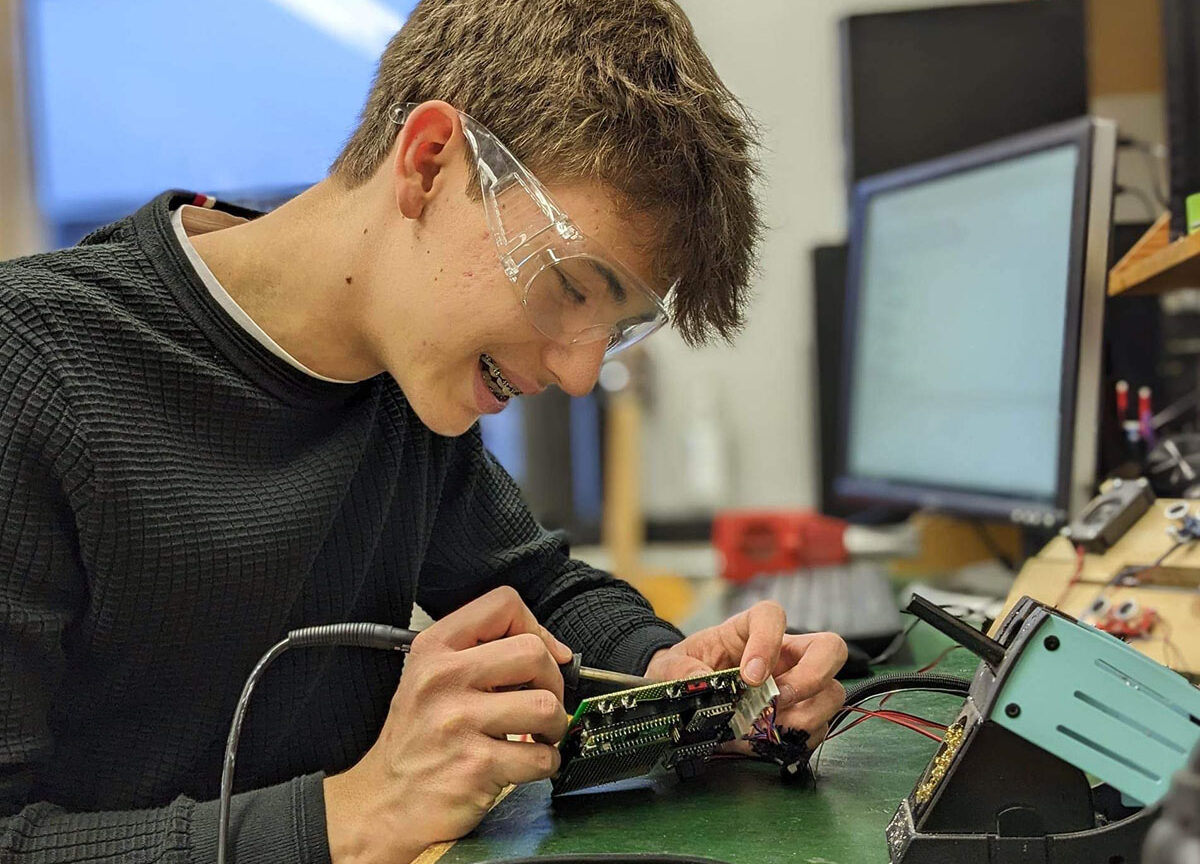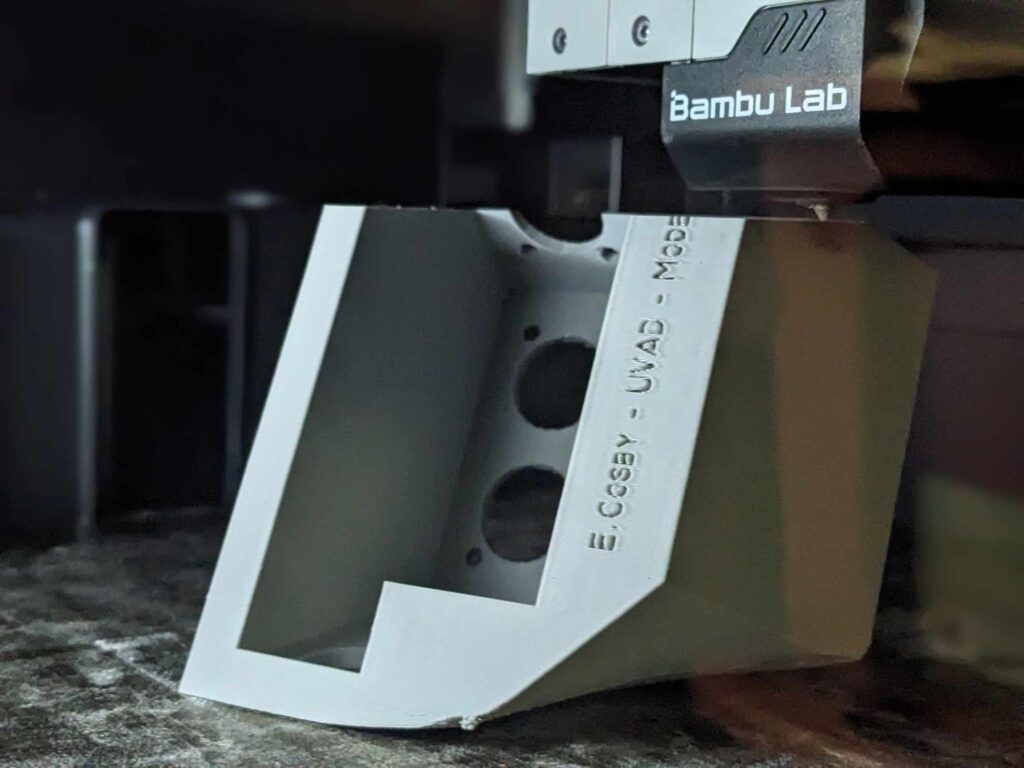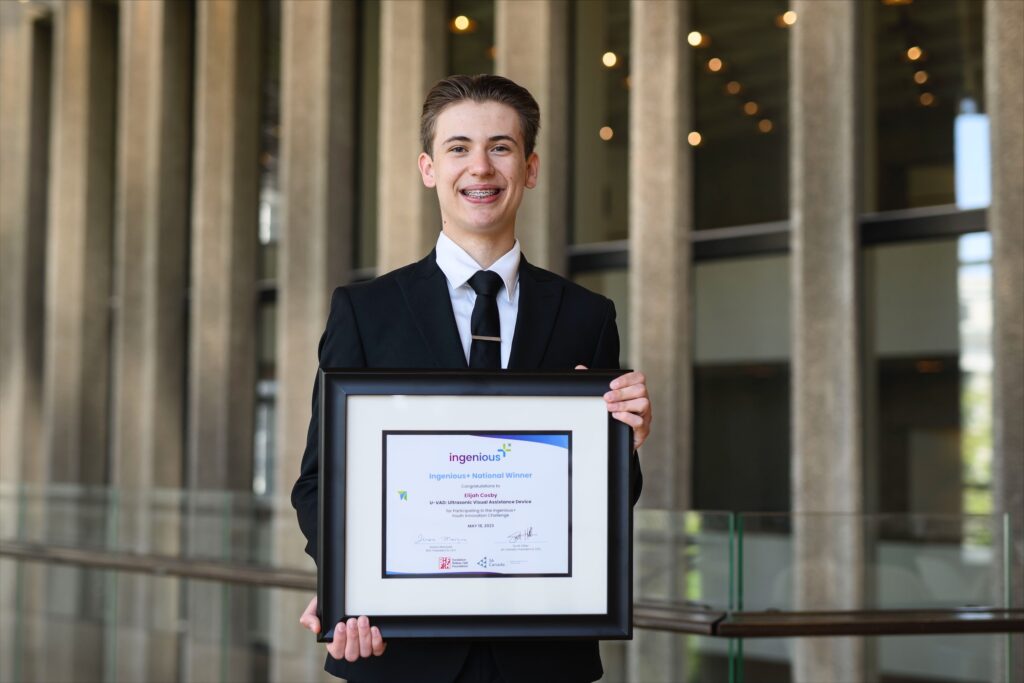
A visual assistive device designed by first year iBioMed student Elijah Cosby has been named the national winner at this year’s Ingenious+ Challenge, in the entrepreneurship and technology category.
For Cosby, this project has been almost two years in the making.
Growing up, Cosby’s best friend’s grandfather, who has a visual impairment, actively avoided going out due to an inability to navigate his surroundings with confidence.
This challenge led Cosby to envision a safer, more accessible world for people living with visual disabilities.
“It can be scary trying to navigate new areas that you’re not familiar with when you don’t have sight to rely on,” explains Cosby. “I knew that this was something that needed to be changed.”
Enter the Ultrasonic Visual Assistance Device (U-VAD), a game-changing assistive device that helps individuals with visual impairments navigate unfamiliar areas with confidence.
A low-cost, high-impact solution
About the size of a fanny pack, U-VAD uses ultrasonic sensors to detect obstacles in the user’s path and then relays auditory information to users.
Using an approach similar to echolocation, U-VAD emits a frequency — one that is imperceptible to the average human ear – that bounces off objects surrounding it. The device then calculates how far away the objects are, determines what the most pertinent potential danger is, and translates that information to the user via a series of beeps. The faster the beeping, the closer the user is to an object. The device also speaks directly to the user, alerting them to the direction of the obstacles in their way.

“It’s important the user’s spatial information is collected, and then relayed to them, quickly in a clear and easy to understand manner.” says Cosby.
While the primary goal for U-VAD is to bring more comfort and confidence to those struggling with their vision, Cosby also recognizes that existing high-tech assistive devices typically run a hefty price tag.
“It’s not about just making this technology but also making sure that it’s designed in a way that makes it an accessible and viable option for those who need it most.”
Through the iBioMed curriculum, Cosby is hoping to apply the skills he’s learned and will continue to learn in his design studio classes to achieve his goals. Gaining knowledge of prototyping and 3D printing has been the first major step in making this a reality. Cosby credits his first-year design courses for helping him improve his device by continuously decreasing it in size with every prototype, using less material to manufacture it which ultimately translated to a decrease in cost.
On the horizon
With the Ingenious+ Canada national award under his belt and a $10,000 prize in his bank account, he’s looking at funding the future of U-VAD.
In addition to this funding, Cosby also became the youngest member of The Clinic, McMaster’s biomedical health incubator.
As for the future of U-VAD, Cosby says that he feels more prepared than ever to take his invention to market, and it’s all thanks to the education he’s receiving as an iBioMed student.
“McMaster really is the place to be for innovators,” says Cosby. “I’m excited to have access to all the state-of-the-art labs and spaces and to continue to receive incredible mentorship from my instructors while I continue to expand my technical skills in engineering.”

